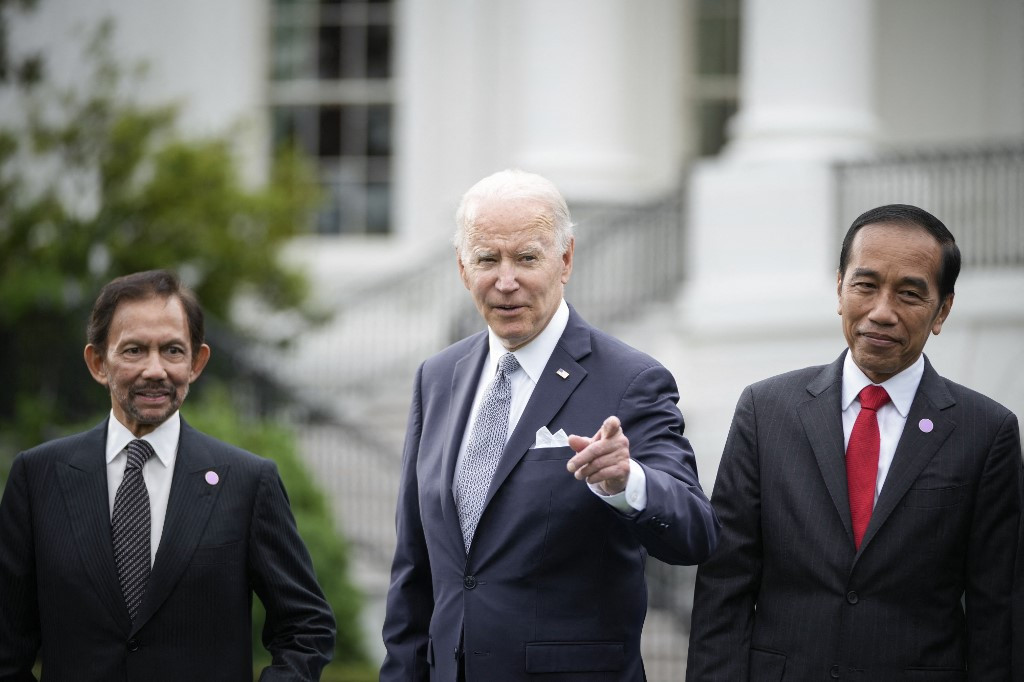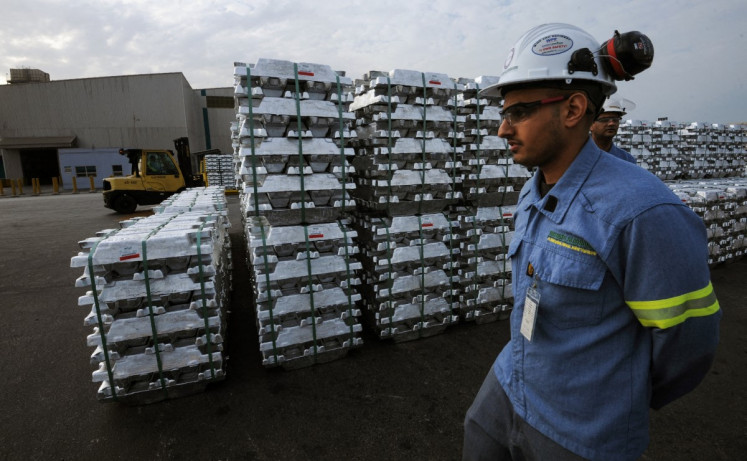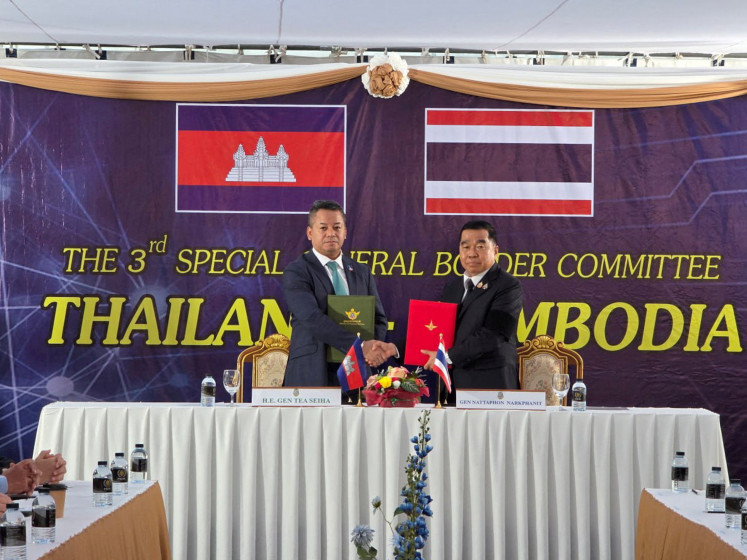Popular Reads
Top Results
Can't find what you're looking for?
View all search resultsPopular Reads
Top Results
Can't find what you're looking for?
View all search resultsStill much to prove
Biden still has a lot to do to show how "special" ASEAN and Southeast Asia really are to the US and its greater Indo-Pacific strategy, aside from keeping China at bay.
Change text size
Gift Premium Articles
to Anyone
 President Joko Widodo (right) watches along with Brunei Sultan Haji Hassanal Bolkiah (left) as United States President Joe Biden responds to a reporter’s question about the baby formula shortage during a photo op for the US-ASEAN Special Summit on May 12, 2022 at the White House South Lawn in Washington, D.C. (AFP/Drew Angerer)
President Joko Widodo (right) watches along with Brunei Sultan Haji Hassanal Bolkiah (left) as United States President Joe Biden responds to a reporter’s question about the baby formula shortage during a photo op for the US-ASEAN Special Summit on May 12, 2022 at the White House South Lawn in Washington, D.C. (AFP/Drew Angerer)
United States President Joe Biden still has a lot to prove to ASEAN, and for good reason.
His divisive predecessor, Donald Trump, used his single term in office to refocus all of Washington’s energy and resources into one-upping China and dabbling in a volatile friendship with nuclear-armed North Korea. Under Trump, the merit of each Asian country was redefined based on how it related to China and the US’ interest in containing its rival’s sphere of influence in the Indo-Pacific.
Southeast Asia’s multilateral platform, ASEAN, was relegated to a spot below countries like Japan and Australia that the US has a better handle on because of historical alliances and similar values, as was made clear in white papers on US foreign policy and defense (not that this was anything new in the American perspective).
Trump also sought to undo most of what Barack Obama and then-vice president Biden did during his two-term Democrat era, which cause one of the biggest human resource crises the State Department had seen.
Even this had an unfortunate effect on ASEAN. In the early months of the Trump presidency, Nina Hachigian was sacked as the US ambassador to ASEAN because the former host of “The Apprentice” considered her to be, first and foremost, an Obama political appointee.
The post remained vacant for years until last week, when President Biden tapped Yohannes Abraham, deputy aide and the White House National Security Council chief of staff and executive secretary, for the post to show that he means business.
If Congress confirms his appointment, Abraham will be the first direct link between Washington and Southeast Asia in five years and make good on one of ASEAN’s biggest demands to the US.
Yet, analysts have generally called the recent US-ASEAN Special Summit “a missed opportunity” in engaging with one of the fastest growing regions in the world.
Again, this is not without reason.
Biden’s US$150 million pledge, on top of the $100 million pledge that Vice President Kamala Harris made during her own mini visit to Southeast Asia last year, has been called a “drop in the bucket” compared to the hundreds of billions in greenbacks China has poured into the region.
The Indo-Pacific Economic Partnership (IPEF), a trade deal lite that Biden is seeking to push through, looks nothing like the Regional Comprehensive Economic Partnership, the largest trade bloc in history that groups 10 Asia-Pacific nation. The US could have done something similar with the Trans-Pacific Partnership, but Trump killed that vision as well.
Biden’s Indo-Pacific Strategy, which gained popularity as a means to exclude China from the US vision of a fair and just regional order, is seen as self-serving, even if some US allies have tried to temper everyone’s expectations.
There are encouraging signs for exploring mutually beneficial interests, especially when US-ASEAN ties are upgraded to a comprehensive strategic partnership (CSP) as indicated in the summit’s vision statement.
But Biden must first prove that his take on US leadership and engagement in Southeast Asia becomes the norm, and not some blip in history signaling another less accommodating era of American exceptionalism.










